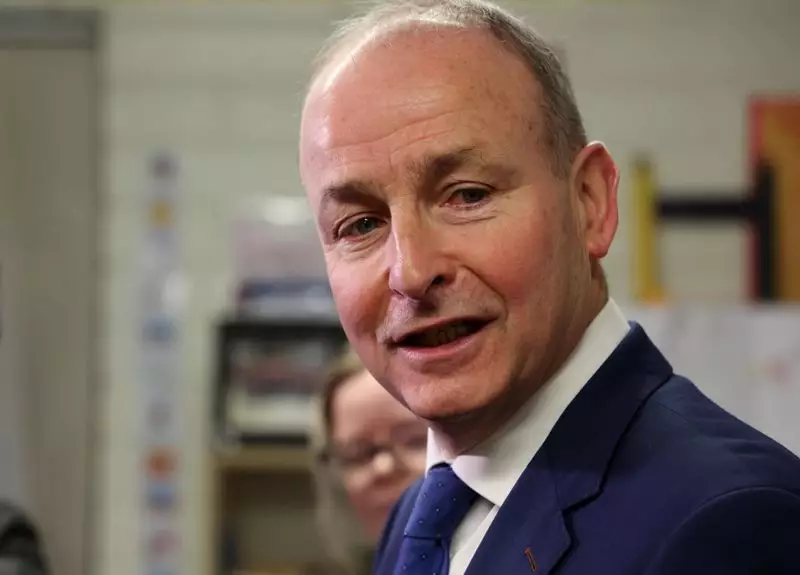Micheál Martin’s recent reinstatement as the Prime Minister of Ireland underscores a remarkable resilience within the nation’s political landscape. Elected for the second time on a platform backed by a coalition of the two dominant centre-right parties, Fine Gael and Fianna Fáil, Martin’s return comes after complications arising from opposition protests disrupted the initial voting schedule. The political drama, marked by parliamentary suspensions and heated debates regarding speaking rights for independent legislators, points to a fraught yet dynamic environment as the new government takes shape.
This coalition marks a continuation of an unprecedented partnership between Fine Gael and Fianna Fáil, historic rivals that have largely governed Ireland since its inception. The coalition’s reliance on independent lawmakers rather than the Green Party, which suffered a significant setback in recent elections, highlights a shift in political alliances and priorities. This maneuvering reflects an evolving political strategy adapting to a rapidly changing voter base and the diverse interests of the electorate.
At 64, Martin brings a wealth of experience to his role, having served as the head of government from 2020 to 2022 before conceding the position to a Fine Gael counterpart. His leadership style is characterized by pragmatism and a commitment to coalition governance, a necessary approach given the current political fragmentation. According to the agreed-upon electoral framework, Simon Harris is poised to reclaim the premiership in 2027 following Martin’s return, illustrating the collaborative governance model that marks this administration. Harris, who will also assume the role of deputy prime minister and likely foreign minister, represents the next generation of leadership poised to bridge between party lines.
Economic Challenges Ahead
The coalition government’s immediate focus must include navigating complex economic challenges, particularly with international factors such as the policies of U.S. President Donald Trump, which could impact Ireland significantly. Trump’s potential shifts in corporate taxation and tariffs pose a substantial threat to Ireland’s economy, heavily reliant on international business, particularly American multinationals. The new administration asserts its commitment to leveraging tax gains from these corporations to bolster public investments, bridge infrastructure gaps, and enhance Ireland’s sovereign wealth funds, aiming for a sustainable economic model.
Historical Context and Future Aspirations
Micheál Martin’s journey from a junior member of parliament to the prime ministership spans over three decades and encompasses significant national events, including the EU/IMF bailout that triggered a political transformation in 2011. His tenure thus far illustrates a remarkable ability to adapt and respond to Ireland’s socio-economic challenges. With a background in history education and extensive ministerial experience across vital sectors, Martin is uniquely positioned to navigate the complexities of governance.
As Ireland embarks on this new chapter, the commitment to coalition governance underlines a collective response to the demands of a diverse electorate. Despite the challenges ahead, Martin’s leadership and the adaptable nature of this fragile coalition may prove vital in guiding Ireland toward a more prosperous future.

